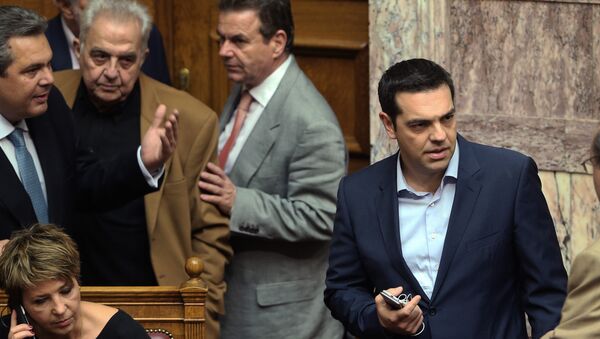Tsipras has already caused anger within his own party for signing up to a major series of reforms demanded by its creditors — the so-called Troika of the International Monetary Fund (IMF), the European Central Bank (ECB) and the European Commission.
After last night's multi-bill vote Tsipras hobbles on with reduced majority & with uphill task ahead https://t.co/eWMrKr1gLj #Greece
— Nick Malkoutzis (@NickMalkoutzis) November 20, 2015
Weeks of negotiations over the latest tranche of bailout money — US$2.15 billion — led to a major row over repayments of unpaid taxes and foreclosures on properties whose owners could not keep up mortgage payments.
The Greek Parliament Thursday voted through a bill outlining regulations for tax repayments and foreclosures, but Tsipras's coalition barely scraped it through following the defection of Nikos Nikolopoulos of the right-wing Independent Greeks party and the abstention of Stathis Panagoulis from Tsipras' Syriza party.
Drama in #Greek House as 2nd #Syriza MP, Stathis Panagoulis, refuses to give his vote to EU-dicated omnibus bill 2night
— Helena Smith (@HelenaSmithGDN) November 19, 2015
Earlier, ex-government spokesman Gabriel Sakellaridis resigned from parliament saying he could no longer support the bailout measures.
The bill allows for foreclosure protection for the primary homes to around 60 percent of mortgages among an estimated 400,000 homeowners who are unable to repay their loans.
However, the move has been heavily criticized, as it will mean some people being thrown out of their main home.
"The government had said they would not confiscate a single home but today they crushed all our rights," Giorgos Tzifonios, a retired steelmaker who was demonstrating outside the Bank of Greece, told Reuters.



